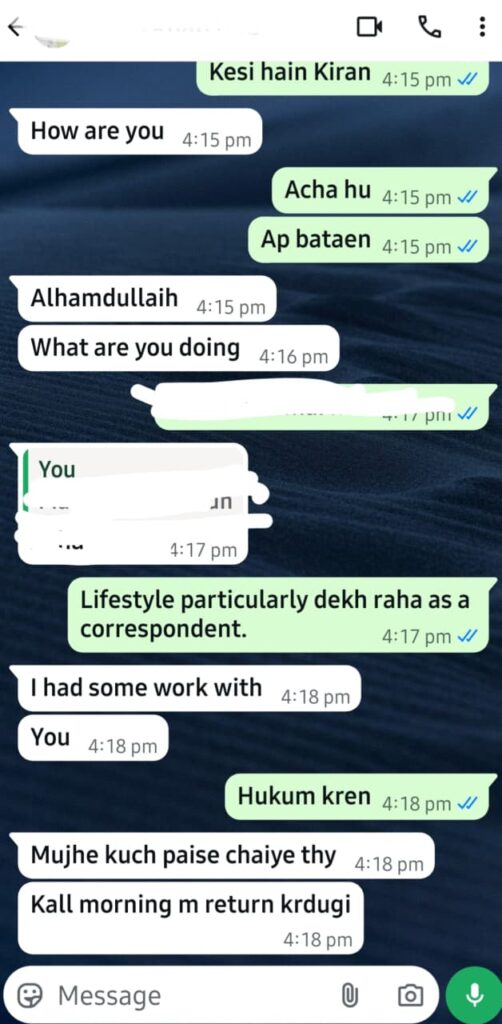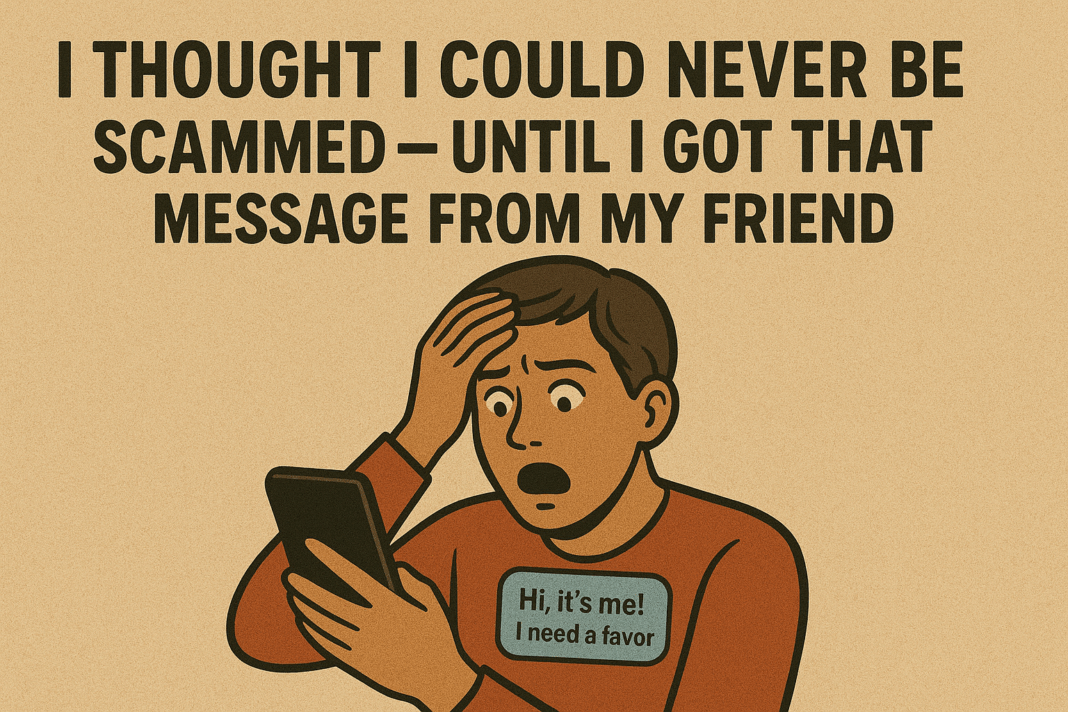I always believed I was too smart to fall for an online scam. Maybe it was because I’d heard so many stories of others getting duped that I thought I’d learned all the red flags. Or maybe it was because I spend most of my day in the digital world — confident I could spot a scam from miles away.
But life has a way of humbling you. Sometimes, all it takes is one distracted moment — one message — to shake that confidence.
The Message That Almost Cost Me ₨ 50,000
A few months ago, I received a WhatsApp message from a close friend, Dara, who lives in Sri Lanka. We exchanged our usual greetings before she asked for a small favor.
She said she needed to transfer ₨ 50,000 to a friend in Karachi but couldn’t do it herself due to a banking issue. Would I mind sending it on her behalf?

It sounded harmless. After all, this was Dara — she wouldn’t lie. Without thinking twice, I agreed. She sent me a Sadapay account number, and I attempted the transfer.
Luckily, the transaction failed. The account was either blocked or flagged as suspicious. I texted Dara to tell her there was some “technical issue.”
Minutes later, I opened Facebook and froze. Her latest post read: “My WhatsApp has been hacked. Please ignore any messages asking for money.”
In that moment, it hit me — I had almost sent my hard-earned money straight into a scammer’s hands.
When a Friend’s Face Isn’t Really Theirs
That day changed something in me. I decided that even if my closest friends ever messaged me asking for money, I’d confirm it on a call first — no exceptions. I even told my circle: “If I ever text you asking for money, call me immediately. Don’t send a single rupee without confirmation.”

WhatsApp hacking scams have become alarmingly common in Pakistan. Reports show a sharp rise in cases where fraudsters impersonate friends or courier riders to hijack accounts by tricking users into sharing verification codes.
Many victims are freelancers or job seekers who fall for fake job offers demanding “security deposits” that can reach up to Rs 1.5 million. Authorities like the Pakistan Telecommunication Authority (PTA) and Digital Rights Foundation regularly warn people to never share verification codes or trust money requests without verbal confirmation.
The New Face of Deception
These scams are easy to fall for — and hard to detect. Sometimes, the language feels off, full of spelling mistakes your friend would never make. But often, the tone feels exactly like them — casual, friendly, and urgent.
To make things worse, the amounts they ask for are small — just enough to seem believable.
SMS scams are another plague. Karachi residents have reported receiving fake traffic fine messages claiming to be from the Karachi Traffic Police, urging payments through mobile wallets like Easypaisa. Officials have confirmed these messages are fraudulent and advise verifying fines only through government channels.
Just recently, another journalist friend messaged me out of the blue: “Hey, where are you these days?”
After a short chat, she asked for money. My gut told me something was off. I called her number immediately. She answered in a panic, “Don’t send anything! My WhatsApp’s been hacked. You’re not the first person they’ve messaged.”
That’s when I realized — these scammers aren’t random. They work in shifts. Just like we have 9-to-5 jobs, they do too — except their job is deception.
The Parcel Trap
Another rising threat is the parcel delivery scam. Scammers pose as courier officials and request “verification codes” for packages that don’t exist. Once you share the code, they hijack your WhatsApp account and use your identity to trick others.
PTA repeatedly warns users to never share verification codes and to contact courier companies directly to confirm deliveries.
Outsmarting the Digital Con
Experts — and even Meta’s safety team — say it best: never trust a message, verify the person.
Here’s how to stay safe:
– Enable Two-Step Verification on WhatsApp.
– Always confirm money requests with a phone or video call.
– Never click on suspicious links or prize notifications.
– Use unique passwords and keep your social media accounts private.
The Digital Arrest
There’s a brilliant film called Logout, starring Babil Khan (Irrfan Khan’s son). It shows how a young man becomes “digitally arrested” — trapped by his own smartphone. Watch it, and you’ll see how frighteningly easy it is to lose control of your digital identity.
The digital world moves fast — conversations, trust, and unfortunately, scams too. All it takes is one wrong click, one moment of misplaced belief, and everything — your data, your money, your peace — can vanish.
Because in this age, trust is the real currency — and one careless moment can bankrupt it.


